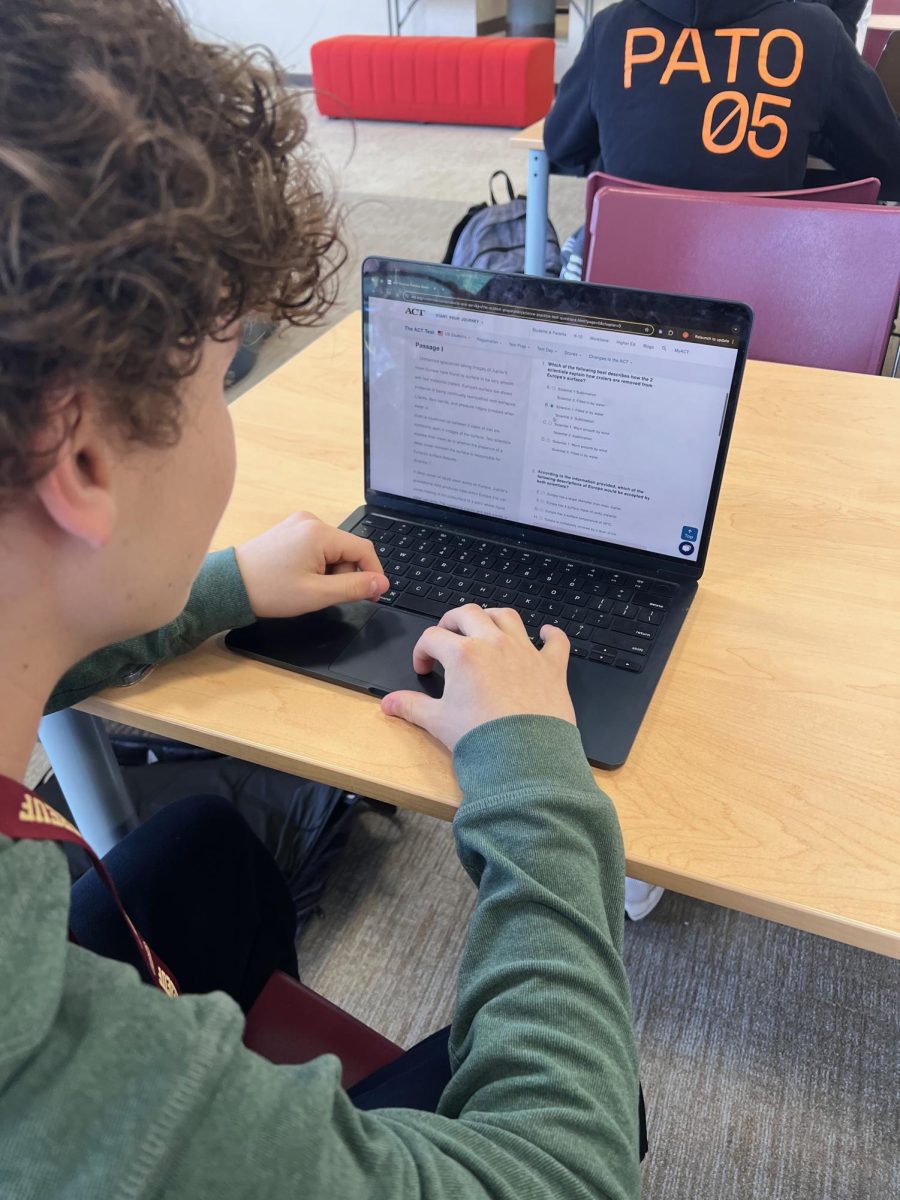Facing Mid-Semester Blues
March 22, 2023
Dealing with stress is common in every student’s life, especially as the year progresses and we become buried in mid-second semester workload. With classes becoming more difficult, the frigid air of winter looming around us, and our extracurriculars more demanding, stress can take a toll on students. The dangers of stress are especially high when we do not recognize its presence or know how to properly deal with it.
Stress can come in all flavors- acute vs chronic, mild vs severe, social vs academic, personal vs professional. Many times, it is not isolated to one area. Most of us are familiar with acute stress based on our evolved biologic and adaptive bodily reflexes including a faster heart rate, higher blood pressure, tense muscles, and a rapid breath. While these same responses can be seen when we are in physical danger, many of us do not recognize how stress can also damage our mental health. The most obvious examples are during finals’ week, or during the middle of second semester, we frequently find ourselves lying in bed scrolling or unable to get our morning going, repeatedly snoozing our alarms. These examples showcase our minds wanting to destress but, in most cases, our inability to communicate that to ourselves or those who care about us. On a more serious scale, untreated and underrecognized stress and burnout are capable of leading to major depression, heart problems and other mental as well as physical issues.
Somewhere around mid-semester, many of us also experience burnout. The definition of and threshold for burnout can vary from student to student but generally revolves around our inability to function at what we perceive is our high level or not deriving pleasure from activities we typically enjoy. Origins of burnout stem from chronic unmitigated or untreated stress which is often disregarded by many students given the quick pace of our lives. Speaking from experience, usually when we become focused on meeting deadlines for major tasks like exams or projects, we tend to be less aware of our surroundings, including recognizing our body’s needs. Because we are more centered on our work, we sometimes fail to complete even the simplest tasks needed for our bodies, like forgetting to eat or drink water. According to LJ Leising ‘26, “When I am burnt out or stressed, I have my sole focus on whatever is causing me stress. I tend to forget the little things like taking my vitamins, just because I don’t have the energy or am not focused on these things.” Although this can be sustainable in the short-term, not taking care of our body’s mental and physical needs can not only lead to burnout but can transform into a bad habit, leading to chronic illnesses.
While untreated stress can sound dire, a variety of easy and quick scientifically-proven methods are available to help release stress and tension fortunately. Given how common burnout occurs in students and adults, extensive research has been conducted to alleviate this problem. One high-impact treatment for stress is physical activity, something many of us already incorporate into our lives on a routine basis. From running or playing sports, just remember, physical activity can boost production of hormones that make us feel happier and protect us from the negative impact of stress. We also hear about other methods of stress relief, such as meditation or yoga exercises, but oftentimes, we nudge these ideas away because we believe they are too time-consuming, not productive enough, etc. There are alternative options that many students use. One common one is to protect some time for an enjoyable activity (even 10 minutes count!). This latter strategy is used by Lucy Kitchell, ‘26. Kitchell says that when she has a heavy workload and she is tired, she tries to finish the work quickly, and leave some time for more enjoyable activities. To fight burnout, Leighton Christian ‘24, recommends listening to Eryka Badu on repeat, especially her album Mama’s Gun. To break the continuous cycle of an unhealthy sleeping schedule, Christian also uses screen time limits on her social media apps. Instead of constantly checking social media, setting a limit nudges her to study math, which not only boosts her math grades but also, helps to put her to sleep (works every time!). Another strategy that works well is to set a timer as a reminder to take breaks, get up and stretch, move, get water and a snack. When properly implemented, these solutions can help you achieve your goal and balance your body’s needs.
Managing stress and knowing your symptoms of burnout are a significant skill that every student should learn. Similar to practicing time management with homework, a student’s control over their endorphin (stress hormone) levels is a field of expertise that will help them for years to come. And while facing the demands and the blues of the mid-semester, we need to appreciate that our body and our health comes first!




